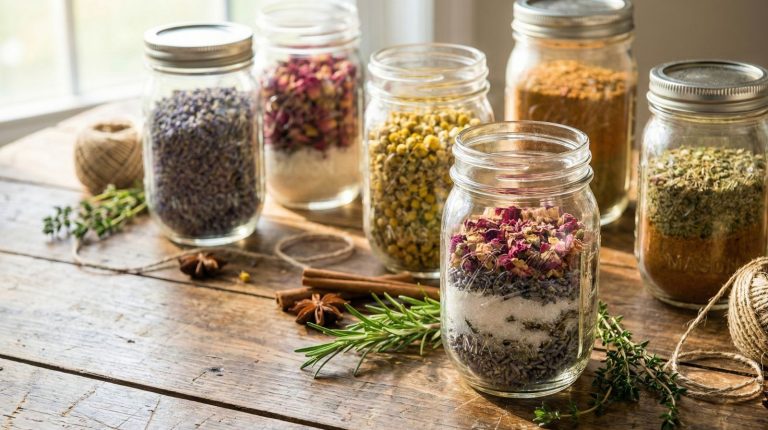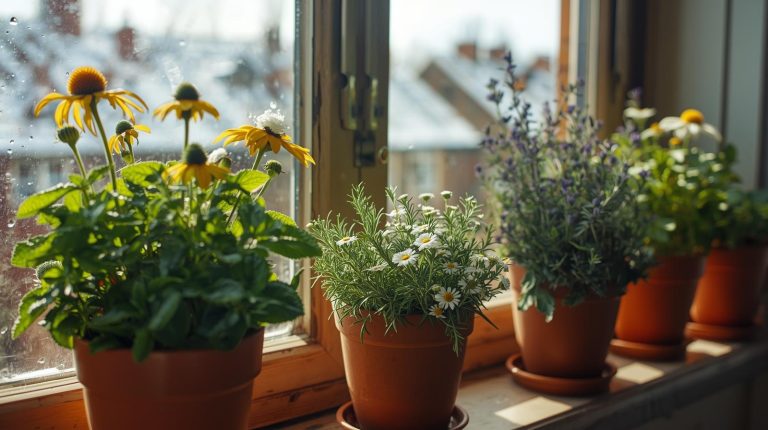Unlock the power of nature with our prime herbal medicinal plants guide. Discover the wonders of Aloe Vera, Chamomile, Echinacea, Ginger, and Lavender. These potent plants hold the key to unlocking the healing potential of homeopathy.
Feel the soothing effects of Chamomile, the immune-boosting properties of Echinacea, and the calming scent of Lavender. Join us on this journey as we explore the world of herbal medicine and empower you to take control of your health naturally.
Aloe Vera
Discover the healing properties of using Aloe Vera in homeopathy, soothing and nourishing your body from within.
Aloe Vera has been used for centuries in skincare due to its numerous benefits. Its gel-like substance contains vitamins, minerals, and antioxidants that help moisturize and rejuvenate the skin. Whether you have dry, oily, or sensitive skin, Aloe Vera can be a natural solution to improve its health and appearance. It can reduce inflammation, heal wounds, and even treat acne.
Additionally, Aloe Vera plays a crucial role in promoting digestive health. Its soothing properties can alleviate symptoms of digestive disorders such as acid reflux, irritable bowel syndrome, and gastritis. Aloe Vera can help relieve inflammation, improve digestion, and promote a healthy gut.
Incorporating Aloe Vera into your skincare routine and diet can provide you with the benefits of its natural healing properties.
Chamomile
You can benefit from the soothing and healing properties of chamomile in homeopathy by incorporating it into your daily routine. Chamomile, also known as Matricaria chamomilla, has been used for centuries for its medicinal properties.
Here are four benefits and uses of chamomile:
- Promotes relaxation and sleep: Chamomile has calming effects that can help reduce anxiety and promote better sleep. Drinking chamomile tea before bed can help you unwind and improve the quality of your sleep.
- Soothes digestive issues: Chamomile has anti-inflammatory properties that can help relieve gastrointestinal discomfort, such as indigestion, bloating, and stomach cramps. Drinking chamomile tea after meals can aid digestion.
- Relieves skin irritations: Chamomile has anti-inflammatory and antioxidant properties that can help soothe skin irritations, such as eczema, rashes, and sunburns. Applying chamomile-infused products or using chamomile essential oil can provide relief.
- Supports immune health: Chamomile contains compounds that can boost the immune system and help fight off infections. Consuming chamomile tea regularly can strengthen your immune system and prevent illnesses.
To grow chamomile at home, follow these steps:
- Choose a sunny spot: Chamomile thrives in full sun, so select a location in your garden that receives at least six hours of sunlight per day.
- Prepare the soil: Chamomile prefers well-drained soil, so make sure to amend the soil with organic matter to improve drainage.
- Sow the seeds: Scatter chamomile seeds over the prepared soil and lightly press them into the ground. Keep the soil moist until the seeds germinate.
- Maintain the plants: Once the chamomile plants start growing, water them regularly and remove any weeds that may compete for nutrients.
Echinacea
Incorporate the medicinal plant echinacea into your daily routine to benefit from its immune-boosting properties.
Echinacea, also known as purple coneflower, has been used for centuries in traditional medicine to support the immune system and treat various ailments. Research suggests that echinacea may help reduce the duration and severity of the common cold and upper respiratory infections. It contains active compounds that stimulate the production of white blood cells, which play a crucial role in fighting off infections.
Echinacea is available in different forms, including capsules, tinctures, and teas. The recommended dosage varies depending on the form and individual needs. However, it’s important to note that echinacea may cause allergic reactions in some individuals and may interact with certain medications. It’s always best to consult with a healthcare professional before incorporating echinacea into your routine.
Ginger
Continuing the exploration of medicinal plants, let’s delve into the benefits of ginger, a powerful herb with a long history of therapeutic uses.
Here are four reasons why ginger is a valuable addition to your natural medicine cabinet:
- Digestive Health: Ginger has been used for centuries to aid digestion, relieve nausea, and reduce bloating. Its compounds help stimulate the production of digestive enzymes and improve gut motility, promoting a healthy digestive system.
- Anti-inflammatory properties: Ginger contains potent anti-inflammatory compounds called gingerols, which can help reduce inflammation in the body. This makes it beneficial for conditions like arthritis, muscle pain, and menstrual cramps.
- Cold and Flu Relief: Ginger has long been used as a natural remedy for cold and flu symptoms. It helps soothe sore throats, relieve congestion, and alleviate coughing. Its warming properties can also promote sweating, which aids in detoxification and boosts the immune system.
- Antiemetic effects: Ginger has been found to be effective in reducing nausea and vomiting, making it a great natural remedy for morning sickness during pregnancy or for those experiencing motion sickness.
Incorporating ginger into your daily routine can provide numerous health benefits, particularly for digestive health and cold and flu relief.
Lavender
Now, let’s dive into the benefits of lavender, a fragrant herb that complements the previous discussion on ginger with its own unique properties.
Lavender is widely known for its calming and soothing effects, making it a popular choice for aromatherapy. Inhaling the pleasant scent of lavender essential oil can help reduce anxiety, promote relaxation, and improve sleep quality. Its therapeutic properties have also been shown to alleviate headaches and migraines.
Apart from its aromatic uses, lavender can also be grown at home to create natural remedies. The plant thrives in well-drained soil and requires plenty of sunlight. Once harvested, the flowers can be dried and used to make lavender tea, which is known for its calming properties. Additionally, lavender oil can be infused with carrier oils to create massage oils or added to bathwater for a relaxing soak.
Incorporating lavender into your daily routine can provide numerous benefits for your overall well-being. Whether you choose to use it in aromatherapy or grow it at home for natural remedies, lavender is a versatile herb that offers a sense of tranquility and promotes a peaceful environment.
Conclusion
This prime herbal medicinal plants guide has provided us with valuable information about the benefits of Aloe Vera, Chamomile, Echinacea, Ginger, and Lavender. These plants have been used in homeopathy for centuries and have shown promising results in improving various health conditions.
It’s important to consult with a healthcare professional before incorporating these herbs into your routine. Remember, nature has always been our ally in healing, and these plants can be a wonderful addition to our wellness journey.
So, let’s unlock the power of homeopathy and embrace the healing properties of these natural remedies.




